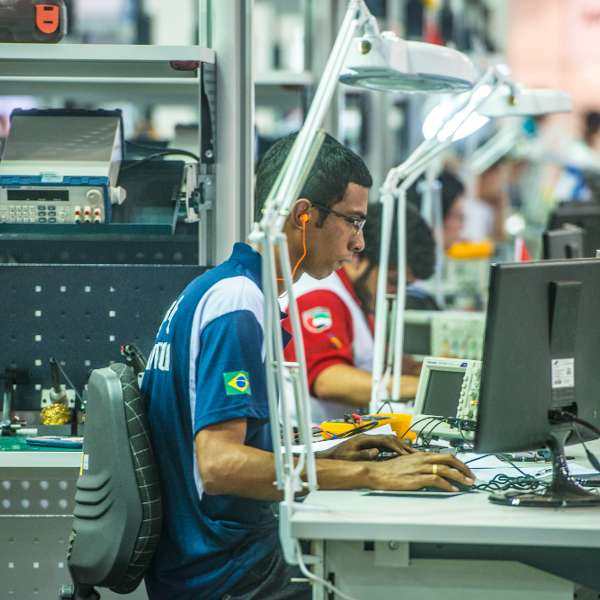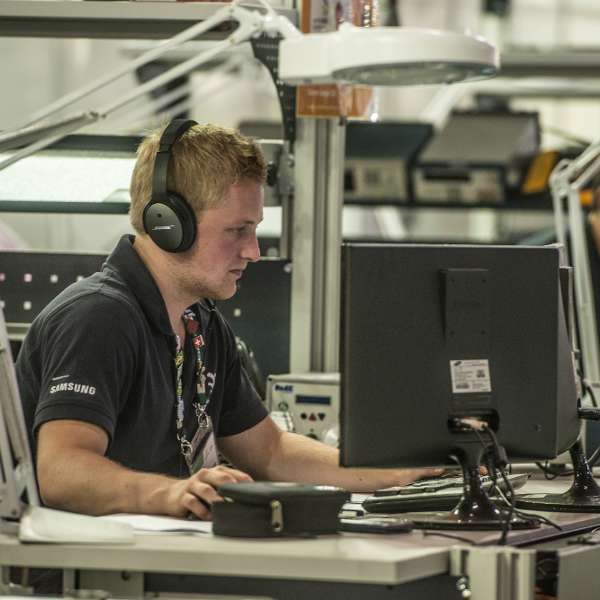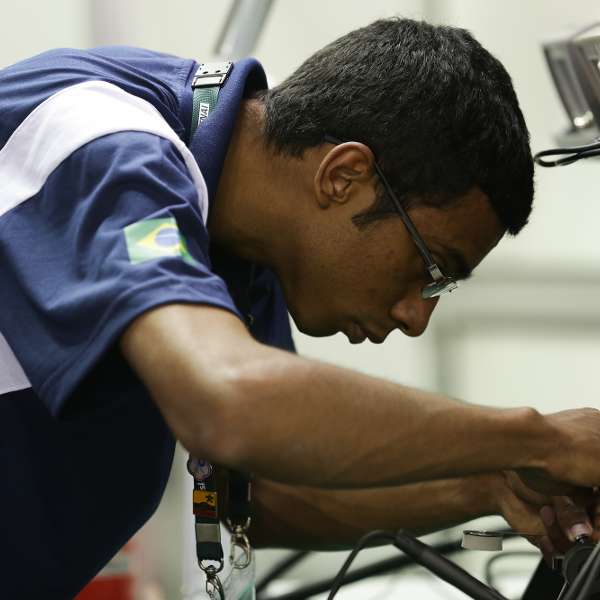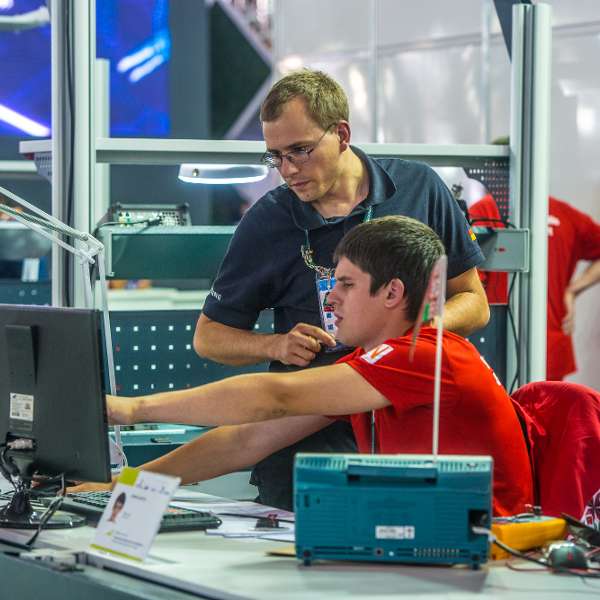Language
Skills are always changing
For the latest information about this skill visit Electronics on worldskills.org.
Electronics
Assembling and wiring products, testing systems, and designing prototype circuits.
Why is this skill important?
Electronics is very diverse field, and while some technicians/engineers work across multiple aspects of electronics, specialization is increasing in areas including the assembly and wiring of electronic products; the designing of prototype circuits; the installation and commissioning of equipment including customer support; service and maintenance; monitoring and testing sub-assemblies or systems; and approving fit-for-purpose and simulating outcomes. They will need to work with a wide range of both hand and computer tools, and should be capable of explaining elements of complex electronics principles to clients.
Specialists find opportunity in a wide variety of industries including aerospace/aeronautics, robotics, media and entertainment, hospitals and research labs, power, transport, security, manufacturing, and the military.
Whatever the industry, given constant and rapid developments in technology, the electronics technician/engineer needs to be proactive in ensuring that their skills and knowledge are up-to-date and meet industry standards and expectations
Could this skill be for you?
If you like:
- Fixing things
- Making things
- Complex problems
- Using computers
- Using tools
You should also take a look at:
The Challenge
Important elements of the challenge include:
-
In this skill, the Competitors use basic electronics tools such as measurement devices and computers.
-
The computer is used for the design of electronics and the programming of embedded systems.
-
The competition task is to build an individual electronic device or individual units belonging to it.
-
Judges are looking for quality of work and quality of work and problem-solving skills.
Skill sponsors
Results
| Medal | Result | Competitor | Country/region |
|---|---|---|---|
| Gold | 735 | YU-CHIH TSAI | Chinese Taipei |
| Silver | 731 | Jannic Schären | Switzerland |
| Silver | 731 | INBEOM SHIN | Korea |
| Medallion for Excellence | 720 | Alireza Abdolkarimi | Iran |
| Medallion for Excellence | 716 | Daniel Frank | Austria |
| Medallion for Excellence | 716 | Hideaki Inukai | Japan |
| Medallion for Excellence | 715 | Helmi Yuliardi | Indonesia |
| Medallion for Excellence | 712 | Gabriel Souza | Brazil |
| Medallion for Excellence | 710 | Maksim Kadnikov | Russia |
| Medallion for Excellence | 709 | Weiye Zeng | China |
| Medallion for Excellence | 701 | Esa Varemo | Finland |
| Medallion for Excellence | 700 | Wei Kang Dylan Lim | Singapore |
| 688 | Harsha Prabakaran | India | |
| 683 | Judd Foster | Canada | |
| 683 | MUHAMMAD YUSRI BAHARUDDIN | Malaysia | |
| 676 | Ninh Thanh Nguyen | Vietnam | |
| 674 | Julian Ulmer | Germany | |
| 672 | Tang Wong | Macao, China | |
| 641 | ULADZISLAU SIOMIK | Belarus | |
| 615 | YASSINE ARRAD | Morocco | |
| 605 | Yasir Altheyabi | Saudi Arabia | |
| 596 | Omar Alhebsi | United Arab Emirates | |
| 595 | Dmitriy Vinokurov | Kazakhstan | |
How to compete
To reach the level of skills required to compete in a WorldSkills Competition takes several years of training and dedication. But the best time to start is now.
Find out more about how to take part in a WorldSkills Competition.












